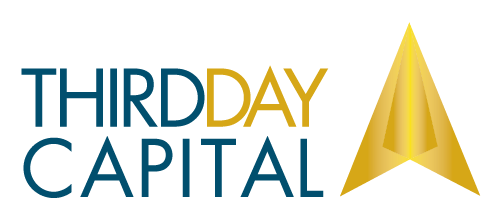When our clients with young children ask us whether they should be giving their children an allowance or paying them to do chores, our answer is almost always “Yes”. The question is most often posed as an “either/or”, but in fact raising financially literate and capable children is a “both/and” answer. Allowances and payment for chores each have their own purposes and benefits, and are therefore, both situationally appropriate and complementary.
It helps to step back a moment and consider the qualities that a financially mature and prudent steward of wealth should possess. These ideal qualities are both values (which we refer to as virtues) and skillsets gained through experience. While every family is unique, and therefore should draft their own list of virtues, we encourage our clients to consider the following:
-
-
-
-
-
-
-
-
- Temperance / Self – Control: Let’s face it, we live in a consumeristic society on steroids that offers to satisfy our every need and want, often by tempting us to cast aside the virtue of temperance and self-control. But temperance and self-control are the foundation of proper saving habits.
- Perseverance and Fortitude: Recognizing that the financial journey is more akin to a marathon than a sprint, and that the marathon will include extended phases that prove challenging and frustrating, perseverance and fortitude, which necessarily include patience, are essential to the accomplishment of long-term goals.
- Appreciation for accomplishments earned through meaningful work: Psychological studies overwhelmingly prove the inherent importance of meaningful work. The ability to provide for one’s own needs is a factor (self-sufficiency), but the evidence also points to the satisfaction we derive from meaningful work that contributes to the good of something beyond ourselves.
-
-
-
-
-
-
-
Coupled with these virtues are specific skillsets that a financially mature and prudent steward will possess. These include:
-
-
-
-
-
-
-
-
- Self-sufficiency: the ability to take care of one’s self.
- Familiarity and comfort with the tangible and intangible concepts of money as a means of exchange and a store of value. This skillset begins with an introduction to physical money, bills and coins, the use of a wallet for safekeeping, ultimately graduating to an understanding of how a free market economy functions, how banks function, the difference between checking and savings accounts, the power of compound interest, credit, taxes and investments.
- An appropriate work ethic, which includes the ability to pay attention to detail and the desire to demonstrate initiative.
- An understanding of and rightful expectation to fair compensation for work performed. Receiving fair compensation is a critical factor in an individual’s sense of self-worth. Paying someone too much is just as detrimental to a person’s self-worth as paying them too little.
-
-
-
-
-
-
-
The above virtues and skillsets are just the starting point, upon which we encourage our clients to build. Yours will hopefully include these factors, as well as those you deem important. But let’s look now at how both an allowance and payment for chores can be used to imbue and teach these virtues and skillsets.
We view an allowance as the initial step in building financial literacy and prudent stewardship. It can begin as early as the child can count, and indeed, money is often used in schools to teach and reinforce counting, addition and subtraction. We encourage our clients to pay an allowance as cash (as both bills and coins) so that children develop a familiarity with the tangible nature of money; as they get older, this familiarity with the tangible nature of money will help them as their interactions with money become increasingly, and perhaps exclusively, intangible in nature. The point of the allowance is to develop familiarity with money, and its purpose: a means of exchange, or simply put “to buy or obtain things”.
Which is why we discourage our clients from linking the allowance to the performance of chores or household duties. Simple duties, such as picking up toys from around the house, keeping their rooms tidy, making their beds, brushing their teeth and hair, bathing and clothing themselves and doing their homework (if they have any), are important opportunities to learn self-sufficiency. But its too early, in our opinion, to begin teaching them the link between money and work. That comes later.
The value of the allowance should be appropriate for their age and the cost of the things they want to buy. An allowance that makes it too easy for them to buy whatever they want defeats the purpose of teaching them patience, whereas an allowance that requires them to wait an extraordinarily long time to purchase even the most inexpensive items risks exhausting their patience tempting them to mentally “checkout” altogether.
When used properly, the allowance is a powerful tool to teach children familiarity with money, the basic concept of a free market economy and the cost of items, while they are also practicing self-sufficiency, temperance and self-control.
As children approach middle school, we encourage our clients to transition their children away from an allowance in favor of payment for chores in order to introduce them to the concepts of fair compensation and to experience the financial and emotional rewards involved with meaningful work. In our own home, when we transitioned our children to payment for chores, we stopped their allowance but required them to continue performing the duties they were already performing to reinforce self-sufficiency (and since the two were never linked, we received no pushback on it). We added additional chores that benefitted the family, such as routine household cleaning and helping with projects around the house and in the yard. We assigned a payment schedule to each chore, based on the difficulty of the task in light of their age and abilities.
As our children got older, we introduced the concept of pay for performance, by applying a sliding payment scale to the list of chores – a basic or mediocre performance earned a base / mediocre pay rate, whereas an excellent performance, where attention to detail was very good and they demonstrated initiative by doing something that wasn’t specifically requested, would earn significantly more, in many cases double the rate of the base / mediocre performance. As they got older, we allowed them to negotiate (to some extent) the payment for chores done so they could explore their own perception of fair compensation. As our daughter entered high school, we encouraged her to seek work outside of the house, with an eye toward helping her hone the work ethic skills and put her perception of fair compensation to the test.
While we didn’t touch on it here, the topics of wants versus needs, allocating money into “Save”, “Spend”, and “Give” buckets, and the introduction and use of piggy banks, wallets / purses, and bank accounts are inextricably linked to the question of whether to pay an allowance or pay for chores. For the sake of brevity, we’ll cover these topics in future posts.
In terms of the original question though, whether to provide an allowance or pay for chores, we’d like to conclude with this thought: children will adopt values / virtues and skillsets regardless of whether you intentionally teach them. If the point of parenting is to shepherd our children through the pitfalls and dangers of the world, while introducing them to the joy that comes from self-sufficiency, meaningful work, patience, temperance and self-control, and familiarity and comfort with money, we owe it to them to use both an allowance and pay them for chores, since both offer important experiential learning opportunities. If your children are too old for an allowance, that’s ok, you can always start with payment for chores, which, if structured properly, will still imbue the values / virtues and teach them the skillsets you want them to have.
Financial literacy is a fundamental necessity to happiness in life. Unfortunately, it’s not something our consumeristic culture is going to teach them. So it’s up to us, as parents, the first and primary educators of our children, to help them learn and grow into the financially literate, mature, and proper stewards of whatever wealth they have at their disposal.


